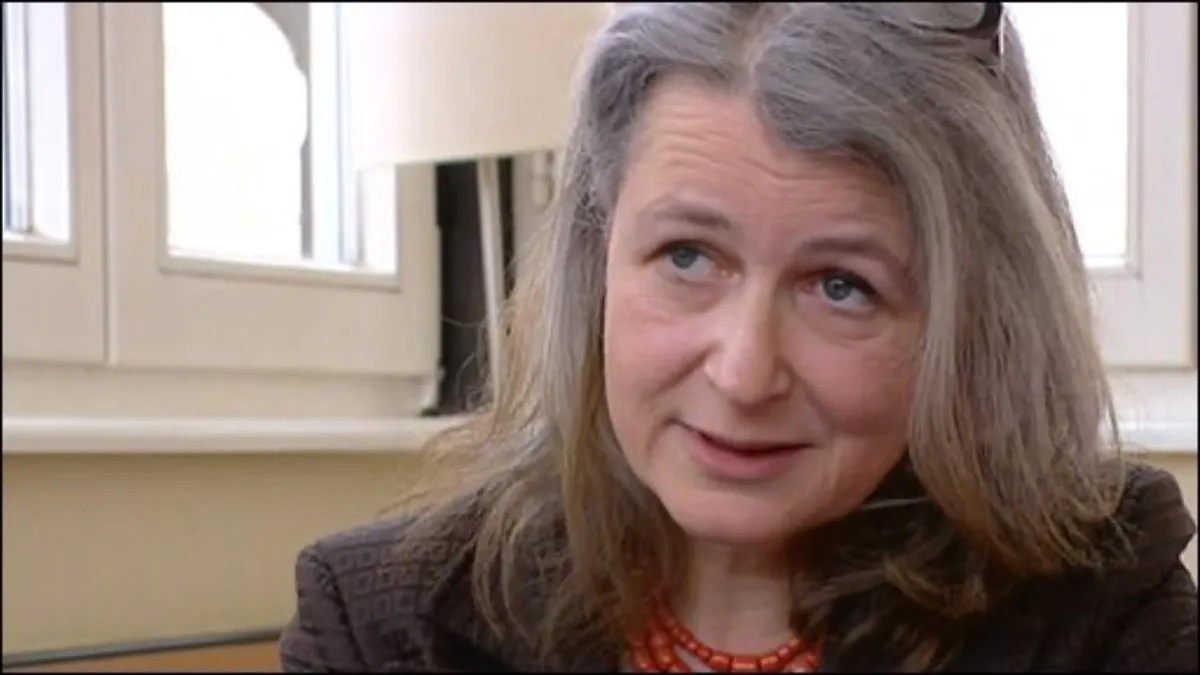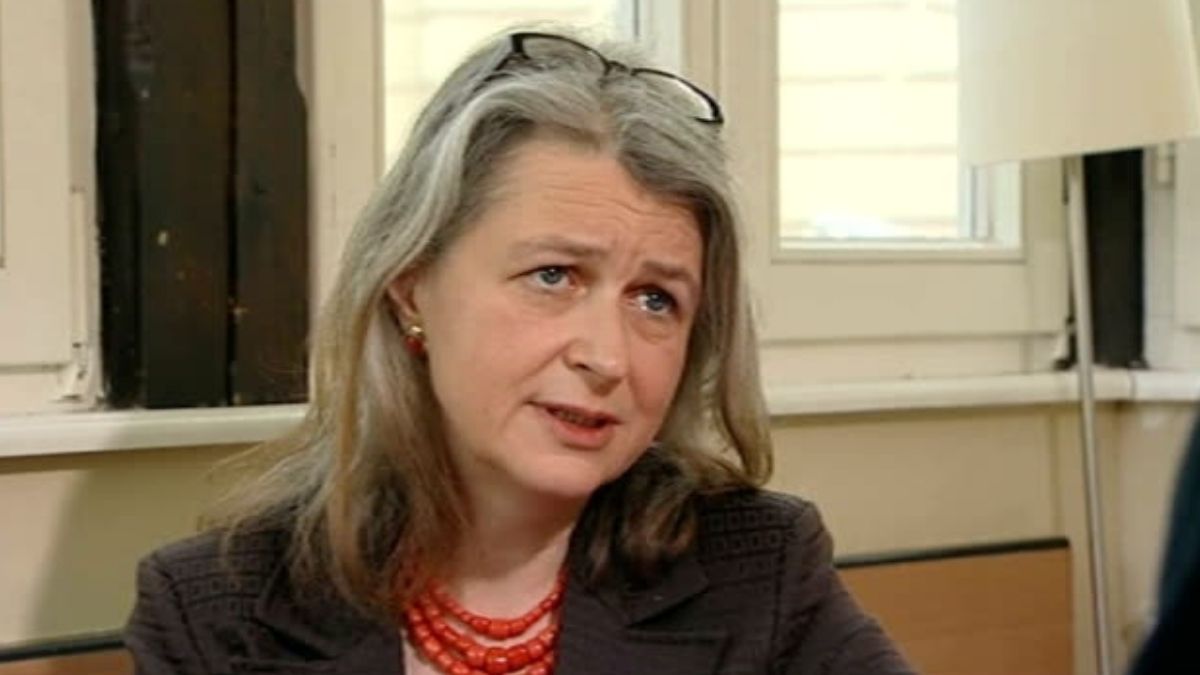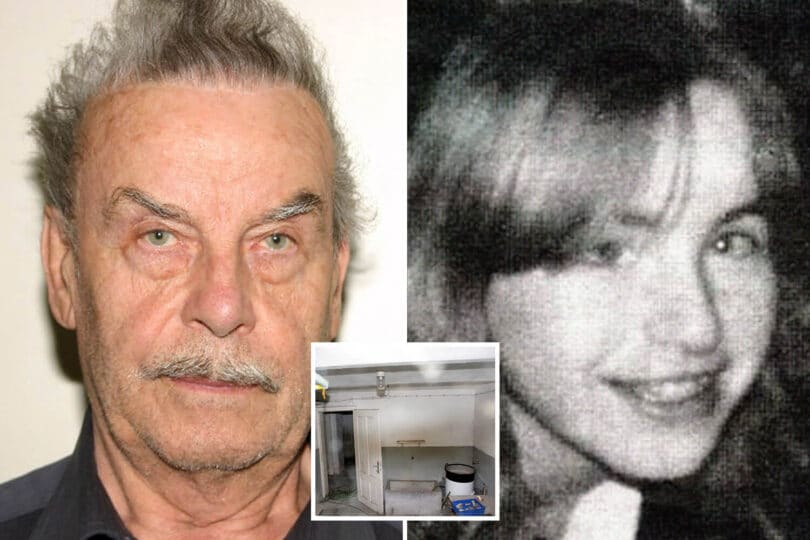Elisabeth Fritzl Today: A Journey Of Survival, Strength, And Resilience
Elisabeth Fritzl's story is one that continues to captivate the world, even years after it first came to light. Her harrowing ordeal and eventual triumph over unimaginable circumstances have made her a symbol of resilience. Today, Elisabeth Fritzl stands as a testament to the human spirit's ability to overcome the darkest of times. Her story is not just about survival; it's about rebuilding, healing, and finding hope in the face of despair.
When you first hear about Elisabeth Fritzl's story, it feels like something out of a nightmare. But this isn't fiction—it's a real-life tragedy that shocked the world. In 2008, Elisabeth's story broke headlines, revealing a horrifying tale of captivity and abuse. Yet, despite everything she endured, Elisabeth has shown incredible strength and courage in moving forward with her life.
As we dive deeper into Elisabeth Fritzl today, we'll explore not only her past but also her present. We'll look at how she's managed to rebuild her life, the challenges she still faces, and the lessons her story offers to all of us. So, buckle up, because this journey is both heart-wrenching and inspiring.
Read also:How Old Is Jim Sheckards New Girlfriend Unveiling The Truth Behind The Buzz
Table of Contents:
- Biography: Who is Elisabeth Fritzl?
- Early Life and Captivity
- The Discovery of Her Ordeal
- Rebuilding Her Life
- Her Support System
- Media Attention and Public Perception
- Mental Health and Healing
- Lessons Learned from Elisabeth's Story
- Elisabeth Fritzl Today
- Future Hopes and Aspirations
Biography: Who is Elisabeth Fritzl?
Before we dive into the details of Elisabeth Fritzl's life today, let's take a step back and understand who she is. Elisabeth Fritzl was born on April 21, 1974, in Amstetten, Austria. She grew up in what seemed like an ordinary family, but beneath the surface, her life was far from normal. Her father, Josef Fritzl, turned out to be the perpetrator of one of the most heinous crimes in modern history.
Elisabeth's story became public in 2008 when it was revealed that she had been held captive by her own father in a secret basement for 24 years. During this time, she gave birth to seven children, all fathered by Josef. The world was stunned by the revelations, and Elisabeth's story quickly became a global sensation.
Key Facts About Elisabeth Fritzl
Here’s a quick rundown of Elisabeth's life:
- Birthdate: April 21, 1974
- Place of Birth: Amstetten, Austria
- Occupation: Survivor and advocate for victims' rights
- Children: Seven, all fathered by her captor, Josef Fritzl
Table: Elisabeth Fritzl's Personal Information
| Attribute | Details |
|---|---|
| Name | Elisabeth Fritzl |
| Date of Birth | April 21, 1974 |
| Place of Birth | Amstetten, Austria |
| Number of Children | 7 |
Early Life and Captivity
Elisabeth's early life seemed unremarkable, at least on the surface. She lived with her family in Amstetten, Austria, and her father, Josef Fritzl, appeared to be a loving parent. However, beneath the facade, Josef was plotting a sinister scheme. In 1984, when Elisabeth was just 18 years old, her father drugged her and locked her in a hidden basement beneath their home.
Read also:Graham Wardle Kids The Heartwarming Journey Of Family Legacy And Love
For the next 24 years, Elisabeth lived in complete isolation. She was subjected to unimaginable abuse and was forced to endure the birth of seven children, all fathered by her captor. The basement where she was held was a labyrinth of cells, equipped with everything Josef needed to keep her imprisoned. It wasn't until 2008 that Elisabeth's ordeal came to light.
Life in Captivity
During her captivity, Elisabeth had no contact with the outside world. She relied on Josef for everything, from food to medical care. Despite the horrors she faced, Elisabeth managed to create a semblance of normalcy for her children. She taught them, played with them, and tried to shield them from the harsh realities of their situation.
One of the most remarkable aspects of Elisabeth's story is how she managed to maintain her sanity and protect her children's well-being in such dire circumstances. Her strength and determination were nothing short of extraordinary.
The Discovery of Her Ordeal
The world learned about Elisabeth Fritzl's nightmare in 2008 when one of her children, Kerstin, fell ill. Josef took Kerstin to the hospital, claiming she was his niece. Doctors were suspicious because Kerstin's medical records didn't match Josef's story. Further investigation led to the discovery of Elisabeth's captivity and the truth about her children's parentage.
Josef Fritzl was arrested and eventually sentenced to life in prison without parole. His trial was one of the most high-profile in Austrian history, and it brought Elisabeth's story to the forefront of global consciousness.
The Impact of the Discovery
The revelation of Elisabeth's ordeal sent shockwaves around the world. It raised important questions about domestic abuse, mental health, and the systems in place to protect victims. Elisabeth's story became a rallying cry for change, inspiring countless individuals to speak out about their own experiences.
Rebuilding Her Life
After her release, Elisabeth faced the daunting task of rebuilding her life. She and her children were moved to a safe location, and measures were taken to ensure their privacy and safety. Elisabeth has since focused on healing and moving forward, though the scars of her past remain.
One of the most significant challenges Elisabeth faced was reintegrating into society. After spending 24 years in isolation, the outside world must have felt overwhelming. However, with the support of her family and therapists, Elisabeth has made remarkable progress.
Elisabeth's Progress
Today, Elisabeth Fritzl is focused on her well-being and that of her children. She has spoken about her desire to live a normal life, away from the spotlight. While she rarely grants interviews, those who have spoken with her describe her as resilient and hopeful.
Her Support System
Elisabeth's journey wouldn't have been possible without the support of her family and friends. Her mother, Rosemarie Fritzl, played a crucial role in helping Elisabeth and her children adjust to life outside the basement. Rosemarie has been a constant source of love and encouragement.
In addition to her family, Elisabeth has worked with therapists and counselors to process her trauma. These professionals have been instrumental in helping her navigate the complexities of her past and present.
The Role of Therapy
Therapy has been a vital part of Elisabeth's healing process. It has provided her with the tools to cope with the emotional and psychological scars left by her captivity. Through therapy, Elisabeth has learned to confront her fears and build a brighter future for herself and her children.
Media Attention and Public Perception
Elisabeth Fritzl's story has garnered immense media attention over the years. While some coverage has been respectful and informative, others have been intrusive and sensationalist. Elisabeth has largely stayed out of the public eye, choosing instead to focus on her recovery.
The public perception of Elisabeth has evolved over time. Initially, many people were shocked and horrified by the details of her captivity. As more information came to light, Elisabeth began to be seen as a symbol of resilience and strength.
Dealing with the Media
Elisabeth has handled media attention with grace and dignity. She has chosen to speak out only when necessary, ensuring that her story is told on her terms. This approach has helped her maintain control over her narrative and protect her privacy.
Mental Health and Healing
Mental health has been a central theme in Elisabeth's journey. The trauma she endured during her captivity has left lasting scars, but she has worked tirelessly to heal. Elisabeth's story highlights the importance of mental health awareness and the need for accessible mental health resources.
Through therapy and support, Elisabeth has made significant strides in her mental health journey. She serves as a reminder that healing is possible, even in the face of unimaginable adversity.
Lessons in Resilience
Elisabeth's story teaches us valuable lessons about resilience and the power of the human spirit. Despite everything she endured, Elisabeth has managed to rebuild her life and find hope in the darkest of times. Her journey is a testament to the strength of the human psyche and the importance of support systems.
Lessons Learned from Elisabeth's Story
Elisabeth Fritzl's story offers several key takeaways:
- The importance of mental health awareness and support
- The need for strong support systems for survivors of abuse
- The resilience of the human spirit in the face of adversity
- The role of media in shaping public perception
These lessons are not just relevant to Elisabeth's story; they apply to anyone who has faced trauma or adversity. Her journey serves as a powerful reminder that healing is possible, and that we all have the potential to overcome even the most challenging circumstances.
Elisabeth Fritzl Today
Today, Elisabeth Fritzl lives a quiet life, away from the public eye. She continues to focus on her well-being and that of her children, ensuring that they have the support and resources they need to thrive. Elisabeth's story is one of survival, strength, and resilience, and it continues to inspire people around the world.
While she rarely speaks to the media, those who have had the privilege of interacting with her describe her as warm, kind, and deeply committed to her family's well-being. Elisabeth's journey is far from over, but she has shown incredible courage in moving forward with her life.
Future Hopes and Aspirations
Looking to the future, Elisabeth Fritzl hopes to continue living a peaceful and fulfilling life. She remains committed to her family and to raising awareness about the issues faced by survivors of abuse. Elisabeth's story is a powerful reminder that healing is a lifelong journey, and that with the right support, anything is possible.
As Elisabeth moves forward, she serves as an inspiration to all of us. Her story is a testament to the human spirit's ability to overcome even the darkest of times, and it offers hope to those who are still struggling to find their way.
In conclusion, Elisabeth Fritzl's story is one of survival, strength, and resilience. While her past was marked by unimaginable suffering, her present and future are filled with hope and promise. We can all learn from Elisabeth's journey and apply the lessons she offers to our own lives. So, take a moment to reflect on Elisabeth's story and consider how it might inspire you to overcome your own challenges. And don't forget to share this article with others who might find it meaningful!



